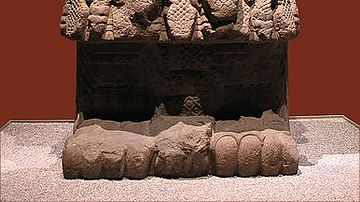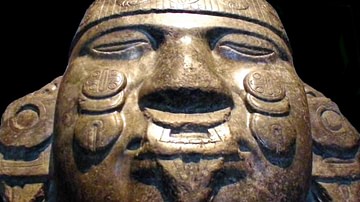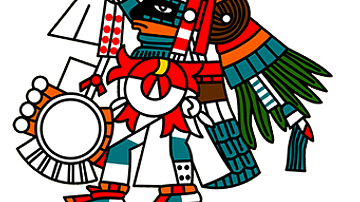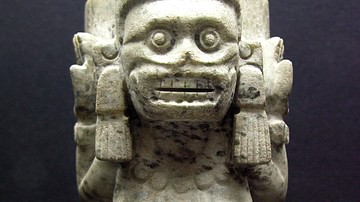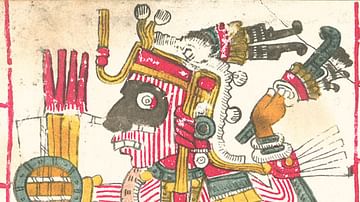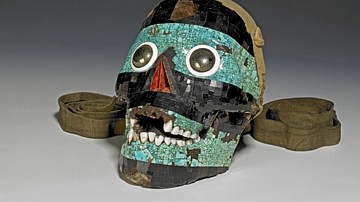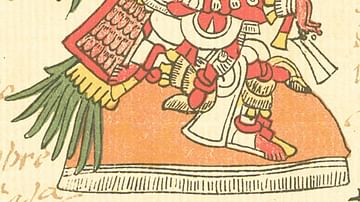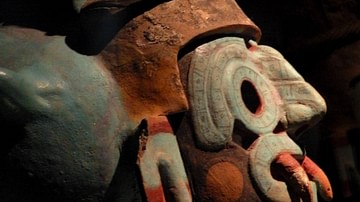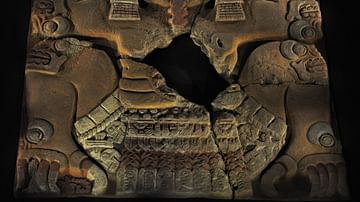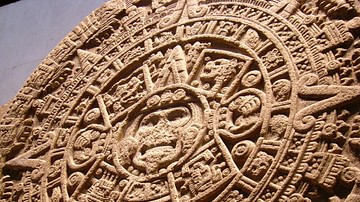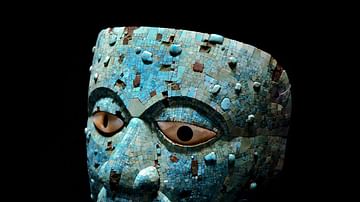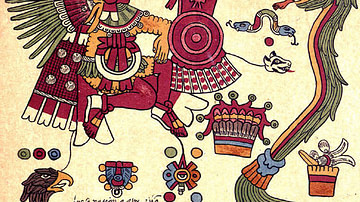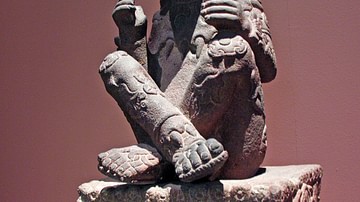The Aztecs of northern Mesoamerica (c. 1345 and 1521 CE) worshipped some of the weirdest, most fantastic and downright scary gods seen anywhere in history. The Aztec civilization and the empire it created revolved around winning special favour with these gods in order to ensure a measure of balance in nature, the continuance of human life and even the daily rising of the sun itself. In this collection we examine 15 gods in detail, looking at the mythology they were involved in and their particular associations such as their special days, numbers and animals. Here are all the major gods from mighty Huitzilopochtli, Hummingbird of the South, and his links with war and eagles to mischievous Xochipilli, the Flower Prince, linked to summer, butterflies and poetry.
The top 15 Aztec gods were:
- Huitzilopochtli - the supreme god of the Sun and war.
- Tezcatlipoca - the ever-present creator god and patron deity of warriors.
- Tlaloc - god of rain, water, lightning, and agriculture.
- Quetzalcóatl - god of winds and rain and the creator of humanity.
- Coatlicue - the earth-mother goddess.
- Tlaltecuhtli - the earth goddess associated with fertility.
- Mictlantecuhtli - ruler of the underworld
- Tonatiuh - god of the present and fifth Sun.
- Coyolxauhqui - goddess of the Moon.
- Mixcoatl - god of hunting, the Milky Way, and the stars
- Ehecatl - god of air and winds.
- Tlahuizcalpantecuhtli - god who represented a menacing aspect of Venus.
- Xiuhtecuhtli - god of fire.
- Xipe Totec- god of spring, seeds, and planting.
- Xochipilli - god of summer, flowers, love, and dancing.
The Aztec gods were appeased through offerings, rituals, festivals and, of course, the infamous blood-thirsty human sacrifices which included beating hearts being ripped from the still-conscious victim, decapitation, skinning and dismemberment. It is perhaps important to remember, though, that the Aztecs believed several major gods had sacrificed themselves for humanity's good. Consequently, blood sacrifices were regarded as a payment back in kind and only one part of the Aztecs' worship. There were plenty of other ways the gods were kept happy, such as giving flowers, foodstuffs, precious objects, and the burning of incense and tobacco.
In the month of Tóxcatl, the sixth month (or 5th) of the Aztec solar year, Tezcatlipoca was worshipped in special ceremonies. As with other Aztec religious rites an important part of the ceremony was the impersonation of the god, most often by a prisoner of war, typically the best looking and most courageous one. For one year before, in fact, the captive was tutored by priests, treated as a noble and even given four women to look after him. These women themselves impersonated goddesses. When the special month finally came around the impersonator was handsomely dressed in a warrior costume and in a symbolic wedding festival he married his four goddesses. Honoured with flowers and dances the man-god was then ferried to a dedicated temple where he was promptly sacrificed and his heart removed to honour the real Tezcatlipoca.
